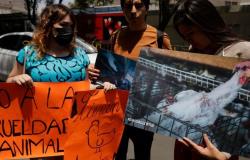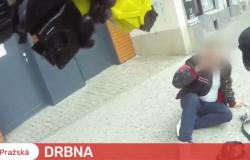It seems that the Czech Republic has an unpleasant inflationary episode behind it. In Norway, domestic inflation even hovered at the value set by the Czech National Bank. However, the exchange rate of the koruna against the euro or the dollar does not react adequately to the relatively positive at first. how is it mon?
The current governor of the Czech National Bank, Ale Michal, promised on the day of his appointment by the then president of the republic, Milo Zeman, that the rate of health care will return to the two percent limit in the course of this year. It was May 2022, and at that time the average inflation rate in the Czech Republic was equal to 16 percent.
In the context of the change of the banking board (Rusnok’s wife was replaced by the lyons, who showed their reluctance to increase the rate over the years), such a promise seemed like something out of science fiction. Especially when it was confirmed in the course of several months that the new banking council of the NB will not raise the annual rate above seven percent.
It turned out, however, that inflation actually fell significantly during the summer and even hovered around two percent in Norway, i.e. the inflation rate of the Czech National Bank. It is very likely that in the course of 2024, we will actually get out of the inflation above two percent. And this is especially so in the autumn months, since the expected effect of the so-called controversial tariff introduced in the year 2021, which threw off the comparative base. Overall, however, inflation for the entire summer should be on average within a tolerable range of one to ten percent. At present, it can even be assumed that the year 2024 will be characterized by the achievement of the inflation target.
This positive development should be adequately reflected in the exchange rate of the Czech crown against the euro and the dollar. The koruna should therefore appreciate or at least depreciate to around 24 crowns per euro, or 21 crowns per US dollar. But the opposite is true. The koruna weakened quite sharply, especially in November, when half of the NB banking board voted in favor of a kind of dream annual rates from the time when the NB started to raise rates (i.e. from June 2021),
Only the dog is buried in it first. The koruna has so far made up for a relatively large annual differential. That is, from the difference between the base years of rates in the country and in the Eurozone, respectively the USA. When the key rate in the Czech Republic was raised to 7 percent (January 2022), the ECB’s key rate was then reduced to zero, down from the first increase (to just 0.5 percent) in July 2022.
years, the differential was therefore a full 6.5 percentage points in favor of the crown. years, the differential between NB and the American Fed was 5.5 percentage points in favor of the koruna. Koruna assets were therefore much more attractive than euro or dollar assets.
However, this opportunity began to be exploited as the Fed and the ECB began to raise their base rates. Currently, the difference between the NB and the ECB is only 1.75 percentage points in favor of the koruna, and between the NB and the Fed it is only one percentage point in favor of the koruna. This means that the koruna gradually lost its attractiveness for foreign investors. This is due to the slight recession of the Czech economy, while the US and Eurozone economies are growing. Foreign investors at this time do not have such strong reasons for preferring koruna assets over assets denominated in euros or dollars.
For the future development of the koruna exchange rate, it will therefore be up to the ECB and the Fed to decide on annual rates. If both central banks will cut rates, again a slight difference in the years will be in favor of the koruna, which could reduce the pressure on the weakened koruna. Only then will it always depend on the policy of NB. If the rate hike continues, the koruna will once again come under selling pressure. In the horizon of the summer year, it is therefore possible to expect that the koruna will struggle against the euro and the dollar at weak levels, not as we were used to thinking about a year ago.
Koruna vi euro exchange rate *
Source: Patria.cz
* Past performance is not a guarantee of future consequences
Roman Vykouil
Executive
Roman Vykouil, after graduating from the technical and economic secondary school in Brno, gained work experience in England, Germany, Austria and Germany (2013-2015).
He then worked in customer services and CRM as a clerk and then as a client service manager in the field of investment services. Since the beginning of 2020, she has led the company Wonderinterest Trading s.r.o. She is a recognized representative of the valuable pepper trader, Wonderinterest Trading Ltd, based in Cyprus.

Wonderinterest Trading Ltd
Wonderinterest Trading s.r.o., the holder of the registration issued by the Czech National Bank, promotes the investment services of the represented merchant, the company Wonderinterest Trading Ltd, through a contract concluded between the investment company and the customer, and provides administrative and technical support for these investment services.
More information at https://wonderinteresttrading.cz/.








